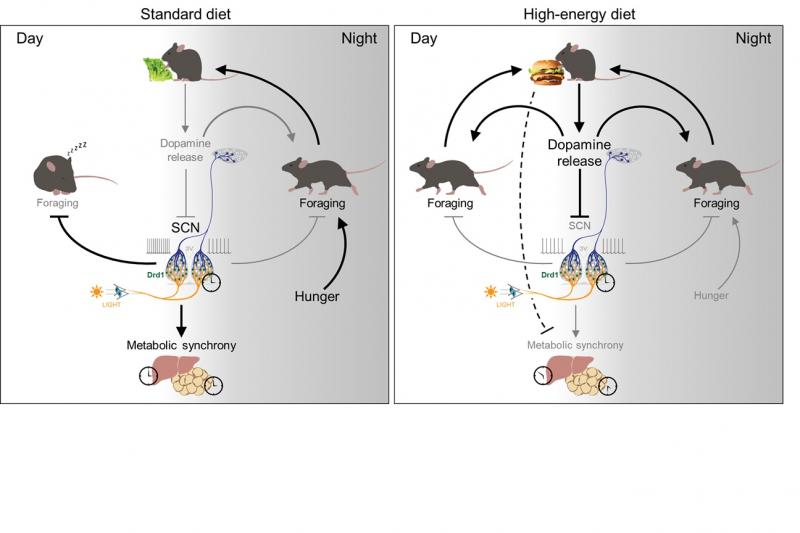Globally, at least 2.2 billion people are overweight and more than 700 million of them are obese. The metabolic syndrome that commonly accompanies obesity increases the risk of heart disease, stroke and diabetes. Weight gain results from excessive energy intake relative to expenditure. However, restricting calorie intake and increasing exercise are only partially effective in preventing obesity because rewarding foods (e.g. cookies) reduce diet adherence and their consumption outside of regular mealtimes favors energy storage. Interestingly, desynchrony in circadian rhythms also disrupt appropriate meal timing and contribute to obesity even in the absence of overeating. Recently, we demonstrated that the dopamine signaling in the SCN is essential for meal timing. To define the neurocircuitry governing palatable food consumption outside of regular mealtimes we are: 1. identifying select population(s) of dopamine-neurons that project to the SCN and promote out-of-phase hedonic feeding, and 2. characterizing the relationship between SCN activity and food intake across the circadian time.
Dopamine signaling in the suprachiasmatic nucleus enables weight gain associated with hedonic feeding RM Grippo, Q Tang, Q Zhang, SR Chadwick, Y Gao, EB Altherr, L Sipe, ... Current Biology 30 (2), 196-208. e8
Direct midbrain dopamine input to the suprachiasmatic nucleus accelerates circadian entrainment RM Grippo, AM Purohit, Q Zhang, LS Zweifel, AD Güler Current Biology 27 (16), 2465-2475. e3
